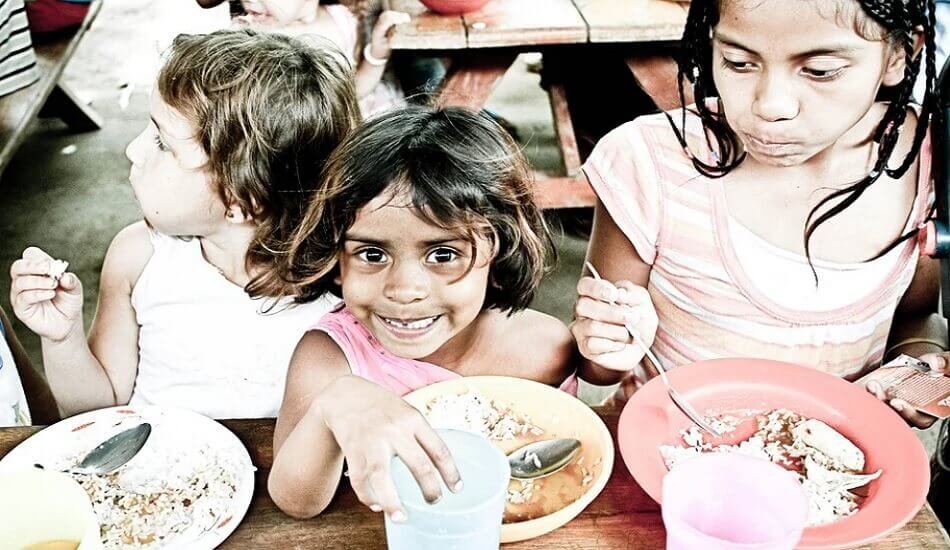UN food chief: Ukrainian farmers fighting war’s food crisis is the worst since World War II
Because many of the Ukrainian farmers who produce a significant amount of the world’s wheat are now fighting Russians, the UN food chief warned Tuesday that the war in Ukraine has created ‘a catastrophe on top of a catastrophe’ that will have a global impact ‘beyond anything we’ve seen since World War II.’
The UN World Food Program’s executive director, David Beasley, told the UN Security Council that already high food prices are soaring. Before Russia’s invasion of Ukraine on February 24, his organization was feeding 125 million people around the world, but Beasley said it had to start rationing them due to increased food, fuel, and shipping expenses.
Also Read | Russia-Ukraine conflict: India’s wheat exports expected to exceed 10mt this fiscal year – USDA.
‘Now we’re looking at getting to zero rations,’ he said, referring to the war-torn Yemen, where 8 million people recently had their food allowance reduced in half. The war in Ukraine is reducing ‘the breadbasket of the world’ to ‘breadlines’ for millions of people, while wreaking havoc on countries like Egypt, which gets 85% of its grain from Ukraine, and Lebanon, which will get 81 percent in 2020, according to Beasley.
Ukraine and Russia produce 30% of the world’s wheat, 20% of corn, and 75-80% of sunflower seed oil. According to him, Ukraine provides 50% of the grain purchased by the World Food Program. Because of rising food, gasoline, and shipping prices, the battle will boost the agency’s monthly expenses by $71 million, he claimed. This will bring the overall cost to $850 million for the year, implying that ‘4 million fewer people we will be able to serve.’
Getting to a million people
According to Beasley, the World Food Program is currently feeding around a million people in Ukraine and expects to reach 2.5 million in the next four weeks, 4 million by the end of May, and perhaps 6 million by the end of June. For the first three months, the price tag is around $500 million, and ‘we’re short by around $300 million, so we’ll have to step up,’ he said.
Beasley warned that the international community’s attention on Ukraine should not lead to a disregard of Africa, particularly the Sahel, and the Middle East, since ‘otherwise, you’ll have tremendous migration’ to all regions of Europe.
‘We can avert famine, destabilization of states, and mass migration if we end the conflict and fulfill the needs,’ he stated. ‘But if we don’t, the globe will suffer horribly, and the last thing the World Food Program wants to do is take food from hungry children and give it to starving children.’
President (Vladimir) Putin’s ‘war of choice,’ according to US Deputy Secretary of State Wendy Sherman, has harmed global food security. ‘Russia has bombed at least three civilian ships transporting products from Black Sea ports to the rest of the globe,’ she added, adding that one of the ships was hired by an agriculture firm.’The Russian navy has closed off access to Ukraine’s ports, effectively halting grain exports.’
‘They’re supposedly preventing about 94 ships carrying food for the global market from reaching the Mediterranean,’ Sherman said, adding that many shipping companies are hesitant to take ships into the Black Sea, even to Russian ports.
Russia’s retaliation
Food prices are soaring as Russia ‘chokes off Ukrainian exports,’ she added, with wheat prices climbing between 20% and 50% so far this year. ‘Countries like Lebanon, Pakistan, Libya, Tunisia, Yemen, and Morocco, which rely significantly on Ukrainian imports to feed their populations,’ Sherman warned.
Also Read | Following Ukraine war, export demand for Indian wheat, corn, spices skyrockets.
Vassily Nebenzia, Russia’s UN envoy, stated that the Russian military ‘poses no threat to civilian navigation freedom.’ He said that Russia has established an 80-nautical-mile humanitarian corridor to allow foreign warships to leave Ukrainian ports and that it is organizing humanitarian passageways to Russia and the West every day within Ukraine.
‘The true reasons for the global food market’s instability are not Russia’s activities, but rather the West’s reckless sanctions frenzy, which has been launched against Russia without regard for the population of the so-called Global South or its own inhabitants,’ Nebenzia said.
Sanctions are lifted
The only way to assure uninterrupted shipments and stabilize world agriculture and food markets, he argued, is to lift sanctions. ‘Sanctions aren’t stopping grain from leaving Ukraine’s ports,’ Sherman said. Putin’s conflict is real. And neither the US nor our allies and partners have imposed sanctions on Russia’s food and agricultural exports.’
The conference was requested by France and Mexico to follow up on the General Assembly’s passage of a humanitarian resolution on Ukraine that they spearheaded, which was passed by a vote of 140-5 with 38 abstentions on Thursday. It urged an immediate halt to hostilities, the protection of populations and critical infrastructure, and unrestricted access to vitally needed supplies.
Also Read | Ukraine-Russia crisis: global wheat prices at 14-year high, India’s export potential beckon.
‘It is Russia’s unjustified and unjustifiable war that is blocking Ukraine from exporting grain, interrupting global supply chains, and driving up prices that threaten the accessibility of agricultural commodities for the most vulnerable,’ French Ambassador Nicolas De Riviere told the Security Council, which has not passed a resolution on Ukraine due to Russia’s veto power.
He warned that Russia’s assault against Ukraine increases the likelihood of global starvation. The poorest people in the world are the first to be affected.’
(Inputs from news agency)


















Add Comment